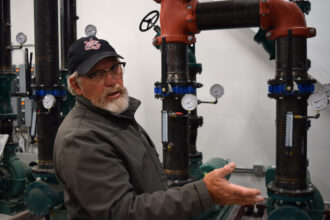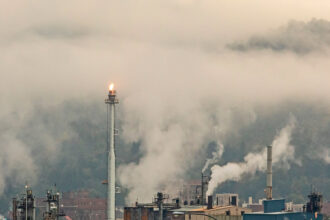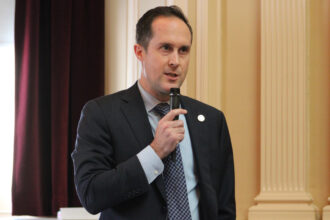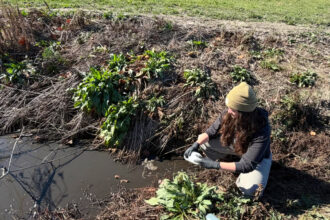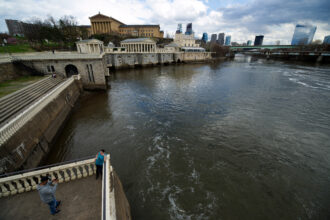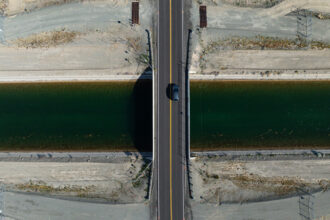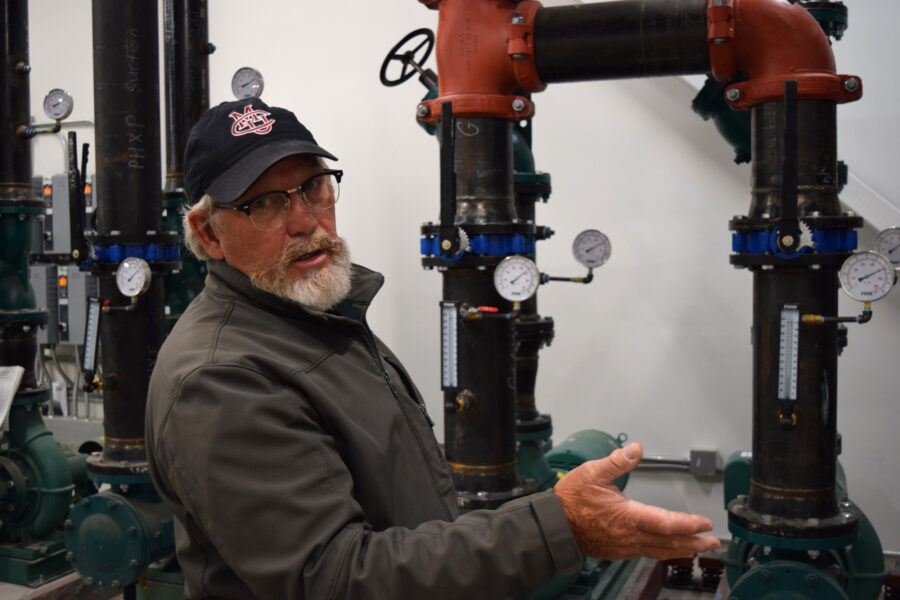Africa Protest Suspends Main Sessions of Climate Talks (Reuters)
The main sessions of Copenhagen climate talks were temporarily suspended today amid a protest led by African nations accusing rich countries of trying to wreck the existing Kyoto Protocol.
China Signals Shift on Climate Funds (Financial Times)
China’s senior negotiator suggest the Chinese have abandoned a demand for funding from the developed world to combat climate change, the first apparent concession by a major player at Copenhagen. He Yafei said financing should be directed to poorer countries.
US Proposes $350M Global Energy Efficiency Project (Washington Post)
U.S. Energy Secretary Steven Chu is to announce today a $350 million international plan to deploy clean technology in developing countries, including everything from solar lanterns in poor households to advanced energy-efficient appliances.
ADB Chief Says Climate Finance Insufficient (Reuters)
The head of the Asian Development Bank says if governments fail to reach a climate deal in Copenhagen, it could lead to a collapse of the carbon market which would hit efforts to deal with climate change.
Pentagon, CIA Consider Climate Change a Security Threat (NPR)
China lashed out at the U.N. office in charge of approving carbon credits after it rejected 10 Chinese wind farm projects earlier this month and accused China of fudging the numbers to make them eligible for international subsidies.
Oil Companies Bet Oil Era Is Far from Over (Financial Times)
While delegates in Copenhagen are trying to hash out an deal to reduce carbon, oil companies in Baghdad over the past two days have swiftly agreed to several huge contracts that will extend the hydrocarbon age for decades to come.
Climate Negotiators Eye the Other Greenhouse Gases (Los Angeles Times)
While the U.S. focuses on CO2, some nations are pushing for measures to curb black carbon, HFCs and methane, which they say will be easier to achieve and will show quick results.
Quebec, Ontario Take Aim at Ottawa on Climate Change (Globe and Mail)
In Denmark for the United Nations climate convention, Quebec Premier Jean Charest condemned the federal government for the potential economic consequences of its anemic fight against climate change.
Key Behind-the-Scenes Role for Rudd In Copenhagen (New York Times)
Fresh from failing — twice — to pass his widely contested plan to reduce Australia’s greenhouse gas emissions, Australia Prime Minister Kevin Rudd headed to Copenhagen today hoping to succeed internationally.
In Bolivia, Water and Ice Tell of Climate Change (New York Times)
Glaciers that have long provided water and electricity to parts of Bolivia are melting away, victims of global warming, scientists say. The impact on people’s lives there is devastating.
Solar Villages Light Up the Andes (IPS)
The residents of the Puna, the dry Andean highlands in northern Argentina, are cut off from everything – except the sun. Living on arid land thousands of metres above sea level, they are on their way to becoming "solar villages."
Some Californians Upset About Smart-Metered Bills (New York Times)
Some consumers say the meters are logging more kilowatt-hours than they believe they are using, and many say it’s unfair that they will pay immediately for the new meters through higher rates when the promised savings could be years away.
Archbishop of Canterbury: Fear Hinders Climate Change Battle (Guardian)
People are so paralyzed by fear and selfishness they cannot save the planet, the archbishop of Canterbury said during a church service in Copenhagen. Humans should not be "doomed to carry on in a downward spiral of the greedy, addictive, loveless behavior."
About This Story
Perhaps you noticed: This story, like all the news we publish, is free to read. That’s because Inside Climate News is a 501c3 nonprofit organization. We do not charge a subscription fee, lock our news behind a paywall, or clutter our website with ads. We make our news on climate and the environment freely available to you and anyone who wants it.
That’s not all. We also share our news for free with scores of other media organizations around the country. Many of them can’t afford to do environmental journalism of their own. We’ve built bureaus from coast to coast to report local stories, collaborate with local newsrooms and co-publish articles so that this vital work is shared as widely as possible.
Two of us launched ICN in 2007. Six years later we earned a Pulitzer Prize for National Reporting, and now we run the oldest and largest dedicated climate newsroom in the nation. We tell the story in all its complexity. We hold polluters accountable. We expose environmental injustice. We debunk misinformation. We scrutinize solutions and inspire action.
Donations from readers like you fund every aspect of what we do. If you don’t already, will you support our ongoing work, our reporting on the biggest crisis facing our planet, and help us reach even more readers in more places?
Please take a moment to make a tax-deductible donation. Every one of them makes a difference.
Thank you,




